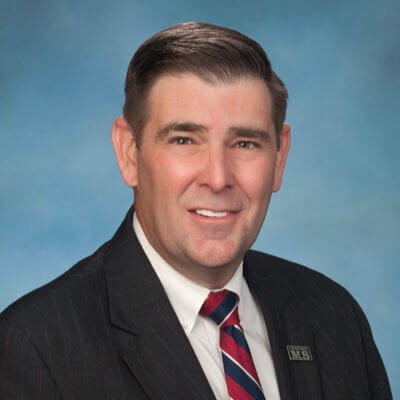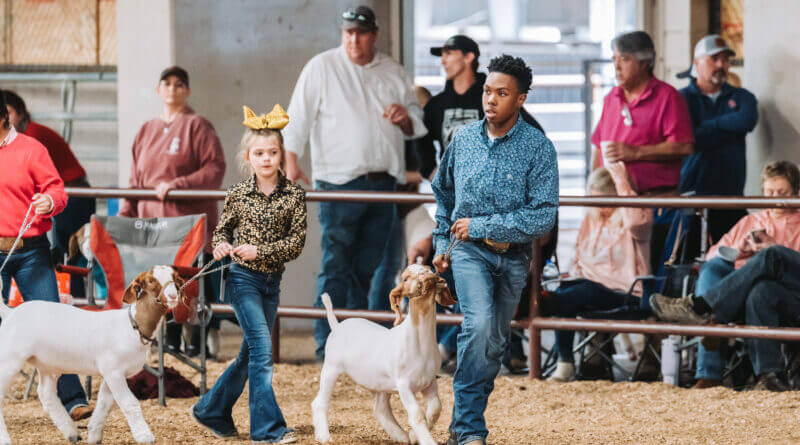Gipson: Agriculture holds key to Mississippi workforce challenges
Note: The following opinion-editorial column is provided by Mississippi Commissioner of Agriculture and Commerce Andy Gipson
By: Commissioner of Agriculture and Commerce Andy Gipson
Most everyone seems to understand that workforce development is crucial in addressing Mississippi’s labor challenges. Most everyone accepts that reaching our youth, training them and keeping them in Mississippi is key to our success when it comes to workforce development. As Ag Commissioner, I believe that Mississippi’s existing 4-H and FFA programs, including our junior livestock programs, hold huge potential to tackle the workforce development needs of Mississippi. These ag-based programs represent the very best youth development and workforce development programs we have in Mississippi.
In a recent opinion column, Lt. Governor Hosemann addressed the critical need to raise the labor force participation rate in Mississippi. I wholeheartedly agree with the Lt. Governor’s assessment. I also agree with his sentiment that the best investment we can make is in the brain of a child. The benefits of this type of investment reach much further than the individuals themselves because the youth of today are our future leaders and they will be the backbone of tomorrow’s workforce.
Today’s labor challenges are nothing new in the world of Agriculture. Agriculture is the number one industry in the state with a farm gate value of more than $8.7 billion in 2023. With agriculture as the single largest employer of our state’s workforce either directly or indirectly, it makes sense we tackle the labor challenges with a focus on the agriculture workforce in the state.
As the Dixie National Jr. Round-Up Livestock Shows managed by the MSU Extension Service illustrate, thousands of 4-H and FFA youths from every corner of the state participate in one of the many livestock shows. Preparing for this competition is a year-long process, and it is not for the faint of heart. Our young people learn the true spirit of hard work, sacrifice and determination. They are often early to rise and late to bed caring for their animals through the summer heat and the cold of winter.

The values instilled in our Junior Livestock participants during their time in the barns and show arena cannot be matched. From an early age, they learn about the wise investment of time and commitment to seeing the job through until it’s done – of actually doing the work and bringing the project to fruition. These same skills are the skills taught by 4-H and FFA. They are not only raising animals; they are also building a resume stacked with a variety of soft and technical skills.
The Livestock Shows are the reason our Dixie National Rodeo exists today. One of the most coveted honors for Mississippi’s youth livestock exhibitors is participating in the Junior Sale of Champions. The hard work and dedication required to compete far surpasses that required for a number of other youth activities. I will say it again: these youth are our future leaders. The skills and lessons learned will not just impact their generation; it will impact Mississippi’s future generations to come.
The time has come to demonstrate our support by investing in the types of programs and facilities that will continue to grow the excellent workforce development initiative that is Mississippi 4-H and FFA. How do we do that?
First, your Department of Agriculture and Commerce has already invested by initiating youth internships through our MS Ag Works program to help connect young people to actual work experience and job opportunities in the private and public sectors. For upcoming youth internship opportunities, visit www.mdac.ms.gov/ms-agworks/.
A second way is by investing in upgraded facilities at our county and State level to provide our young people the workforce facilities that will spur youth involvement and grow interest in the 4-H and FFA programs. Originally geared toward large farm animals like cattle, hogs and horses, the programs today also provide plenty of avenues for kids in suburban, or even urban areas, to participate with the addition of our Rabbit and Chicken Shows. Now every young person in Mississippi can get involved, learn basic workforce skills and experience this excellent youth development opportunity. We also need to rebuild our State livestock facilities constructed on the State Fairgrounds over 75 years ago which are quickly becoming unsafe and in desperate need of replacement.
Third, in addition to workforce facility investments, an emphasis on careers in agriculture should be brought back to our schools. Our extension agents and agriculture teachers work tirelessly, committed to growing the next generation of agriculture leaders. Agriculture education should be made a priority at the school level with dedicated funding support through the State Department of Education. We know through experience such as our MDAC Wild Hog Youth Trapping Corps that youth who are taught about agricultural work opportunities are eager to get involved. When they get involved, they learn workforce skills.
There was a time not that long ago that almost every kid was a “farm kid” with hard work and ethics instilled from farm life. That is not the case today, but in Mississippi, every kid can have the opportunity to be a farm kid through 4-H and FFA. When they plug in, they learn core values taught on the farm that will take them far in life no matter their chosen career path. I encourage our Mississippi Legislature to support our youth and the longstanding traditions of the 4-H and FFA by making these strategic investments that will enhance workforce development and labor participation and will truly serve the people of Mississippi for the next 100 years.





